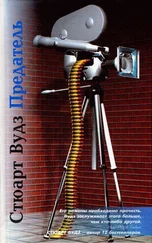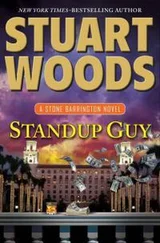“Go bugger himself, perhaps?” she replied.
“As much as I’d like to suggest that, perhaps not.”
“Oh, well. You asked.”
Mrs. Green had a thought. She rapped on the director’s door, was told to enter, and she entered. “I’ve had a thought, Director,” she said.
“Pray tell me.”
“Perhaps an inspection tour of some of our stations?”
“Primary stations, or secondary?”
“Perhaps both?”
“It’s a lovely thought,” Felicity said, “but he might twig to what we’re doing. However...” She thought for a moment. “Please get me Lance Cabot.”
“Of course, Director,” Mrs. Green said, smiling. She went back to her desk, placed the call, then announced to the director, “Mr. Cabot for you on the overseas line.”
Felicity picked up her phone. “Lance, how are you?” she asked brightly.
“Very well, thank you, Felicity. And you?”
“Oh, very well. Lance, are you acquainted with a Brigadier Roger Fife-Simpson?”
“I seem to recall a colonel by that name.”
“He’s been promoted.”
“Sort of a ramrod type?”
“That’s the one. He’s been appointed my new deputy.”
“Somehow I feel that you did not select him.”
“You might say that,” Felicity said. “He’ll be doing a bit of orientation with our outlying stations, as well as with our allies.”
“Ah, I see.”
“And I was wondering if one or more of your people might, ah, orient him for a week or so.”
“I expect I can find someone to handle that — someone I don’t like very much.”
“Ideal,” Felicity said. “May I have him arrive at Langley the day after tomorrow?”
“Certainly. I’ll be leaving that afternoon. I can see him in the morning, then hand him off to a minion.”
“How perfect,” Felicity said. “I’ll tell him to report to you at ten AM.”
“I’ll have staff accumulate some reading for him, then give him the ten-cent tour.”
“Wonderful. Are you coming my way?”
“As a matter of fact, I am,” Lance replied.
“May I entertain you at lunch?”
“That would be delightful. Thursday all right?”
“One o’clock at the Reform Club, then?”
“See you there.”
“Fly safely.” Felicity hung up and buzzed Cartwright. “I’ll see the brigadier now,” she said.
Fife-Simpson was started from a doze by a buzzing noise. It took a moment for him to realize that it was coming from his telephone, and he picked it up. “Yes?”
“Brigadier,” Cartwright said, “the director will see you now.” She hung up.
Fife-Simpson leapt to his feet, got into his suit jacket, checked the mirror on the back of the door, then trotted down the hall. He was shown into the director’s office immediately.
“Good morning, Brigadier,” Felicity said, indicating that he should sit.
“Good morning, Director,” he said, taking the chair opposite her.
“First of all, may I welcome you to the service?”
“Thank you, ma’am.”
“I have a task for you, which I believe you will find enlightening. It’s the sort of thing I would ordinarily do myself, but I find myself a little overwhelmed at the moment.”
“Whatever I can do, Director.”
“Good. Pack a bag and present yourself, at ten o’clock in the morning the day after tomorrow in Langley, Virginia, to Lance Cabot, the director of central intelligence, at CIA headquarters.”
Fife-Simpson sat up straighter. “And what am I to do there?”
“You are to look and listen, ask questions, and, if necessary, answer some, from a selection of the Agency’s people, with an eye toward assessing the current relationship between the CIA and our service, and looking for ways to improve it. Stay as long as you need to, and on return, write a report summarizing your observations and your suggestions, for my eyes only. I may see fit to distribute it to a short list of our people at a later date.”
“I’d be very happy to, ma’am,” he said.
“And while you’re over there, pop into our embassy in Washington, pay your respects to the ambassador, and have a talk with our station chief and his deputy. Find out what they’re working on, and see what, if anything, they need to do their work better.”
“How long should I stay, Director?”
“As long as it takes. Cartwright will arrange your schedule and book your airline seat and hotel accommodations. You should probably stay in D.C., since Langley is in a more rural setting.”
The brigadier stood and nearly saluted, but caught himself. “Thank you, Director. I’ll report upon return.”
“Very good, Brigadier,” she said, then turned to open a file and gaze at it, dismissing him.
Fife-Simpson marched out. Felicity breathed a sigh of relief.
Stone was reading in the library the following day when Rose let herself in, then sat in his lap. “Watch out for Winston Churchill,” he said, moving the book to a side table. “You could bruise yourself.”
She kissed him fulsomely. “I’m glad to see you,” she said.
“I’m glad to hear it,” he replied, kissing her back. “Your arrival was the signal to the staff to get lunch ready. Would you like something first?”
“Perhaps a glass of sherry.”
Stone got up, took a decanter from the bar, and poured her a glass.
“Mmmm,” she said, tasting it. “Delicious. What is it?”
“It’s a dry Oloroso,” Stone replied. “Called Dos Cortados.”
“I thought Olorosos were sweet,” she said.
“Most are, this one isn’t.” He poured himself one, and they settled into the Chesterfield sofa.
“Tell me,” she said. “I’ve heard from a friend or two that someone has been asking questions about me. Would that have anything to do with you?”
“I expect it has something to do with the fact that I have two very good friends who want to know all about everybody who has anything to do with me.”
“I expect I can guess who they are.”
“I expect you can.”
“Was there anything they didn’t tell you that you want to know?”
“A great deal, but right now only one thing.”
“And what is that?”
“Why did you place St. George’s Hospital at Hyde Park Corner?”
“Well, I didn’t want to tell anybody that I’m working down at Tooting,” she said, laughing. “Hyde Park Corner sounds so much better.”
“Perhaps to anyone who doesn’t possess an A to Z Guide ,” Stone said. “I’m surprised to know that you haven’t been trained to lie better than that.”
“They didn’t train me to lie at medical school.”
“Then that explains why you do it so badly.”
“I expect so.”
“I’m curious, though. Why did you hang on to your married name when you were divorced?”
“Because I didn’t want my fellow students and professors to know that I was being divorced,” she said. “I just didn’t want to explain. However, I can tell you that I recently signed a number of letters to various organizations, including the medical registry, informing them that my name has been changed to Mary Rose McGill Balfour, and to correct their records to that effect. I left the McGill in there so that anyone looking for me by that name might find it.”
“How transparent of you,” Stone said. “So now you’re a farmer’s daughter again?”
“I always was.”
“The only McGill in the county of Rutland is a bookmaker.”
“That must have confused your nosy friends.”
“Momentarily.”
“Do you have any other names besides Stone and Barrington?”
“My middle name is Malon, which was my father’s Christian name, but I never used it, because each time I did I had to explain that it was pronounced May-lon .”
Читать дальше












